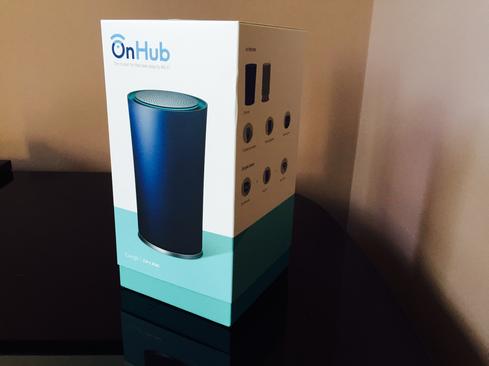Apple, Cisco Team On iOS For BusinessesApple, Cisco Team On iOS For Businesses
In a nod to Apple's growth among enterprise users, the two companies have entered a partnership to ensure Cisco products work well with iOS devices.


Google OnHub Router: My First 24 Hours
Google OnHub Router: My First 24 Hours (Click image for larger view and slideshow.)
Apple and Cisco on Monday announced plans to optimize Cisco networks to build "a fast lane for iOS business users."
The two companies say they will collaborate to make Cisco networking equipment handle data for Apple's mobile devices more efficiently.
Highlighting the popularity of Apple's mobile devices among major enterprise companies, CEO Tim Cook said in a statement that iPhones and iPads have become essential business tools. "Together with Cisco, we believe we can give businesses the tools to maximize the potential of iOS and help employees become even more productive using the devices they already love," he said.
Cisco executive chairman John Chambers in a statement described the partnership as a way to provide joint customers with improved network efficiency and reliability.
The two companies said they'll work together to make tools such as Cisco Spark, Cisco Telepresence, and Cisco WebEx function seamlessly on iPhones and iPads.
In a brief live video broadcast through Twitter's Periscope app, Rowan Trollope, senior VP and general manager of Cisco's collaboration technology group, said the partnership will allow iPhone users, for example, to come into a meeting room and automatically connect to business communications systems.
"We want to make it native for your iPhone to connect to the corporate communications network," said Trollope.
[ These apps will only cost you the time it takes to download them. Read 10 Handy iPhone Apps Worth Downloading. ]
In so doing, iPhone calls at work would no longer pass over the phone carrier's cellular network. Rather, they would pass through the corporate telephony system.
Trollope said that businesses often find that the proliferation of mobile devices can tax network bandwidth. He described a scenario in which a healthcare worker might have the same bandwidth available as someone streaming videos on the network for entertainment.
"You don't want the same quality of service for cat videos," Trollope said, without addressing whether a fast lane for iOS users means a slow lane for users of other devices on the network.
The deal marks Apple's second major enterprise partnership under CEO Tim Cook. Just over a year ago, Apple and IBM entered into a partnership to promote Apple's products to enterprise customers and to develop industry-specific iOS apps.
Until the advent of the iPhone and the iPad, Apple showed little interest in courting enterprise customers. But in the past few years, the company's attitude has changed. During Apple's Q3 2015 conference call, Cook made a point of citing Apple's success in winning business customers. He mentioned broad use of iPads and iPhones at United Airlines, new customers such as Air Canada, Banorte in Mexico, and National Grid in the UK, and progress with the IBM partnership.
Cook said Apple is working with more than 40 mobility partners to deliver software and services to businesses.
With the support of Cisco and its broad partner organization, Apple may be able to reverse the downward trend in tablet sales, particularly if the long-rumored large-screen iPad becomes a reality. According to research firm IDC, Apple shipped 10.9 million iPads in Q2, down from 13.3 million in Q2 2014.
IDC anayst Jitesh Ubrani attributed part of the sales decline to the fact that tablets can last a long time without being replaced. He noted that Apple's upcoming iOS 9 includes productivity-enhancing features that may help revitalize the tablet market.
About the Author
You May Also Like






